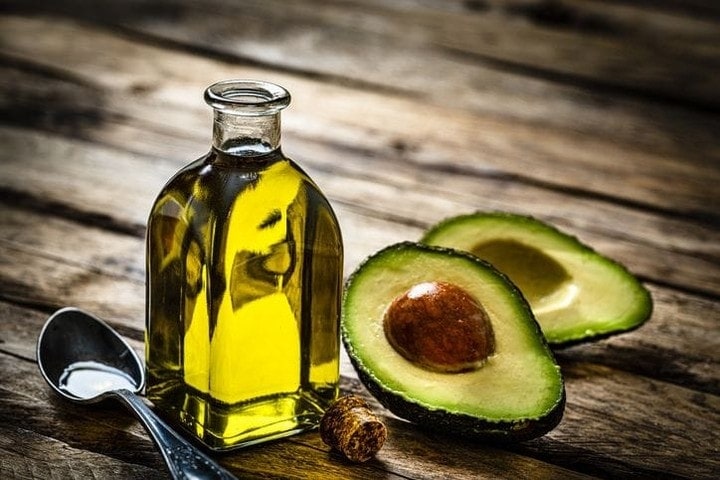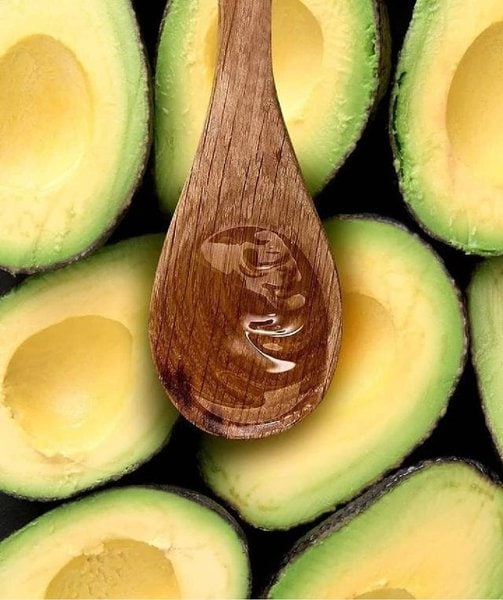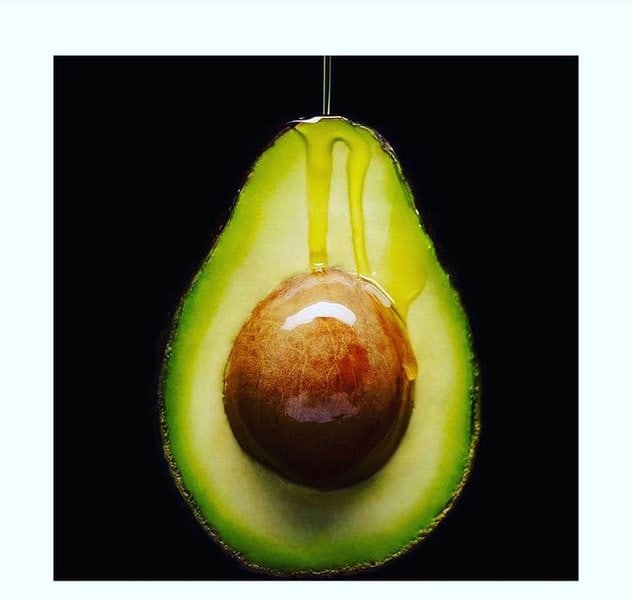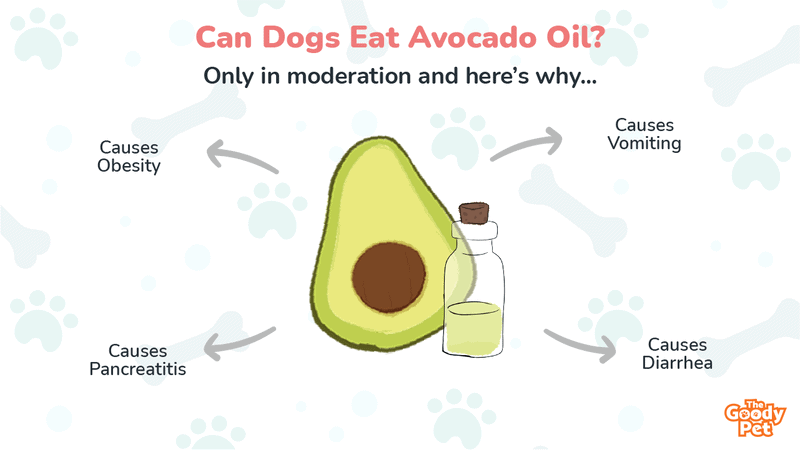Avocado oil has quickly become one of the most popular cooking oils on the market as more and more people become more conscious of what they put into their bodies. While it has numerous health benefits, including zero cholesterol, pet owners have to deal with whether or not Avocado oil is safe for their pooches.
In a nutshell, dogs can safely consume avocado oil as long as it is included in their diet in strict moderation. This is mainly because too much of even healthy, plant-based oils could cause irritation of the dog’s gut.
Fortunately, avocado oil is non-toxic to dogs despite the fact that the rest of the avocado itself may be poisonous. Furthermore, avocado oil actually has numerous health benefits that your pooch can enjoy.
In the sections below, we shall take a close look at both the good and the bad when it comes to giving your dog avocado oil.
Can Dogs Eat Avocado Oil?

Dogs can safely consume avocado oil. This is despite the fact that the rest of the avocado plant contains a chemical known as persin, which can be toxic to dogs.
In addition to being safe for dogs to consume, avocado oil has numerous health benefits. These are attributable to the oil’s rich nutrient profile. Here are some of the most important of these components and how they will be beneficial to your pooch.
Omega-3 And Omega-6
Avocado oil is one of the best plant-based sources of omega-3 and omega-6 fats. These are crucial for the health and well-being of your dog.
Perhaps the biggest benefit of these essential fatty acids is improved coat health. Consumption of healthy amounts of avocado oil on a regular basis will keep the dog’s fur and skin healthy and glowing. It also comes in handy in case of skin irritation by promoting healing.
The omega-3 and omega-6 fats in the avocado oil also help with cognitive development and functionality. This is particularly important for puppies as their brains grow and they continue to learn.
Antioxidants
Avocado oil is also rich in antioxidants, including lutein. These help keep your dog’s body free of toxins for a healthy environment in which their cells can function optimally.
In the long run, these antioxidants help slow down aging while also minimizing the risk of health issues like cancer.
Unsaturated Fatty Acids
Avocado oil is made up largely of unsaturated fatty acids. These are the good kind, and in addition to being a great source of energy, the oil helps to reduce the levels of unhealthy fats in your dog’s body.
The result is a reduced risk of developing issues like heart disease that are common, especially among older dogs.
Fat-Soluble Vitamins
Adding avocado oil to your dog’s diet also means increasing their access to fat-soluble vitamins like vitamin A, vitamin D, vitamin E, and vitamin K. Some of these vitamins, like vitamin A and E, are present in avocados and find their way into the oil during the extraction process.
Once consumed, the avocado oil also helps improve the absorption of these crucial vitamins from other components of your dog’s diet.
Is Avocado Oil Harmful For Dogs?

While avocado oil in moderate amounts is safe and beneficial to your dog, too much of the oil could have harmful health effects. These harmful effects are a result of the high fatty acid content in the oil.
For some perspective on what could go wrong if you let your dog have too much avocado oil, here are some of these undesirable health effects.
Diarrhea
When fatty acids are consumed in excess, they can cause gastrointestinal irritation in your dog. This can happen, even if the source of the fats is something healthy like avocado oil.
Therefore, if your dog consumes too much avocado oil, they may suffer from this irritation, in which case diarrhea is the most common effect.
Vomiting
The gastrointestinal irritation from overconsuming avocado oil could also manifest with vomiting. In this case, your dog will also probably lose their regular appetite as eating just worsens the discomfort.
The combination of vomiting and diarrhea could result in dehydration which is why it is important you keep your pooch hydrated during these episodes.
Obesity
Obesity is more of a long-term consequence of allowing your dog to consume too much avocado oil. This is because avocado oil is rich in calories, with a single tablespoon containing as much as 124 calories and 0.5 oz of fat.
Continuous consumption of large amounts of avocado oil will result in a net excess in calories which predisposes the pooch to develop obesity. This is more likely to happen in inactive dogs or those whose diet is already very unhealthy.
Pancreatitis
Pancreatitis is a condition where the dog’s pancreas becomes inflamed. Excessive consumption of oils, including avocado oil, is identified as one of the most common causes of the condition in dogs.
Pancreatitis is very painful for the dog, and you may notice them being withdrawn and resistant to handling. Furthermore, they may demonstrate features of gastrointestinal irritation, including vomiting, diarrhea, and bloating.
Pancreatitis is a potentially life-threatening condition, and you should seek veterinary assistance as soon as you suspect your dog has it.
How Much Avocado Oil Can You Give Your Dog?
As with most other plant-based oils, the recommended amount of avocado oil that you can give your dog depends on their body weight. A healthy amount, in this case, is one teaspoon of avocado oil per 20 lbs of body weight per meal.
This is a small enough amount that the dog will get to enjoy the health benefits of avocado oil without being at risk of the short-term and long-term consequences.
If your dog is very inactive, it is best to give them less than what you calculate based on their body weight. You could give them half of a teaspoon of avocado oil for every 20 lbs of body weight.
This is important as inactive dogs are more likely to develop obesity with the same caloric intake as more active dogs.






